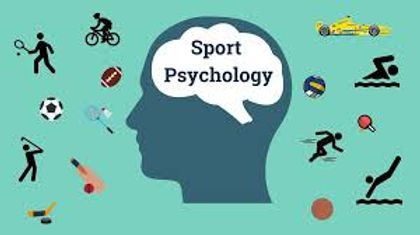Grasoot sports are essential for the development of young athletes, providing a basis for physical skills while shaping mental and emotional resilience. These programs are an integral part of society, the personal growth of promotion, community commitment and physical development. At this level, sports encourage the enjoyment of physical activity, diversity and unity, beyond mere competition. It is important to note that the psychological development of young athletes is crucial, and integrating psychological training from the beginning can significantly affect their mental skills and general mental health.
The introduction of psychological intervention at the base level is fundamental for several reasons. Young athletes are in a fundamental stage of development where habits, attitudes and behaviors are formed. Given its novelty to sport and the various life adjustments they face, psychological skills training is vital to guarantee comprehensive development. This early intervention helps athletes to build a strong mental framework with their physical skills. Skills such as building trust, improving the approach and stress management, crucial for both sport and life, feed through psychological training.
Sports naturally provide a conducive environment to develop various mental skills. Teamwork improves social and communication skills, while competition encourages focus, perseverance and establishment of objectives. Sports also teach resistance as athletes learn to face and overcome failure. Regular physical activity is linked to an improvement of mood and reduced anxiety, so it is an effective tool to improve mental health. The structure and discipline inherent in sports help young athletes develop time management skills and a sense of responsibility.
Indian athletes, particularly at the base level, or face significant mental health challenges, including performance pressure, lack of adequate training and inappropriate mental health support. Financial tickets also contribute to these challenges. The cultural stigma surrounding mental health can prevent athletes from seeking help, leading to problems such as anxiety, depression and exhaustion. In addition, the intense approach to academic success in India often means that sports are not prioritized, adding stress for young athletes that balance both.
The psychological needs and the challenges of elite athletes differ significantly from those of base athletes. Elite athletes face high pressure sitations, intense competition and media scrutiny. They require advanced training of mental skills to handle stress, keep the focus and recover from setbacks. Sports psychologists play a crucial role in helping elite athletes to optimize their performance through techniques such as visualization, internal dialogue and relaxation strategies.
In contrast, base athletes are in a stage of development, focusing on building a solid psychological basis. Sports psychologists who work with basic athletes emphasize the development of basic mental skills, fostering love for sport and guaranteeing a balanced approach to training and competition. They work to develop trust, motivation and resistance, essential for long -term success. Base athletes face challenges such as limited resources, juggling with education or sports work, uncertainty about reaching professional level and community and family pressures.
Mental skills training is the sport of sports psychology, which uses psychological methodologies to improve athletes’s performance. The establishment of objectives is an effective technique, where coaches guide athletes to establish specific, measurable, relevant, relevant and linked smart goals. Visualization is another powerful tool; Mental practice, competition preparation and success visualization help athletes improve their performance.
To understand and support the mental health of base athletes, several processable steps can be tasks. These include raising awareness and educating athletes, coaches and supporting staff about the importance of mental health. Accessibility to mental health professionals such as sports psychologists is crucial, and sports institutions must guarantee their availability. In addition, creating a support environment, keeping resources online and the aid line, and encouraging participation in peer support groups are beneficial.
For athletes, mental health is as critical as physical health, significantly influencing their well -being and general performance. Indian athletes face different mental health challenges, such as improper access to resources and performance pressures. To strengthen mental resilience and optimize performance, athletes at all levels can benefit from the experience of sports psychologists and proactive mental health strategies. When addressing these mental health concerns in an integral way, athletes can achieve a more balanced and successful career, improving their longevity and satisfaction to their sports.
Sparsha Rai is following its title in Psychology of NMIMS, Bombay. Originally it comes from a small but impressive city known as Mangalore located in the beautiful state of Karnataka. She aspires to become a psychologist in the future and intends to be the best and most original version of herself.

